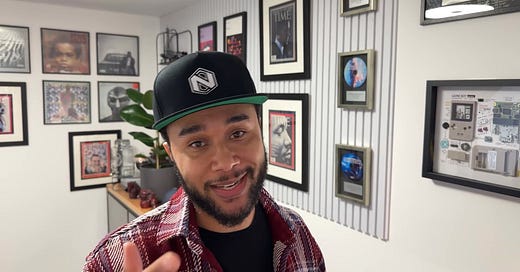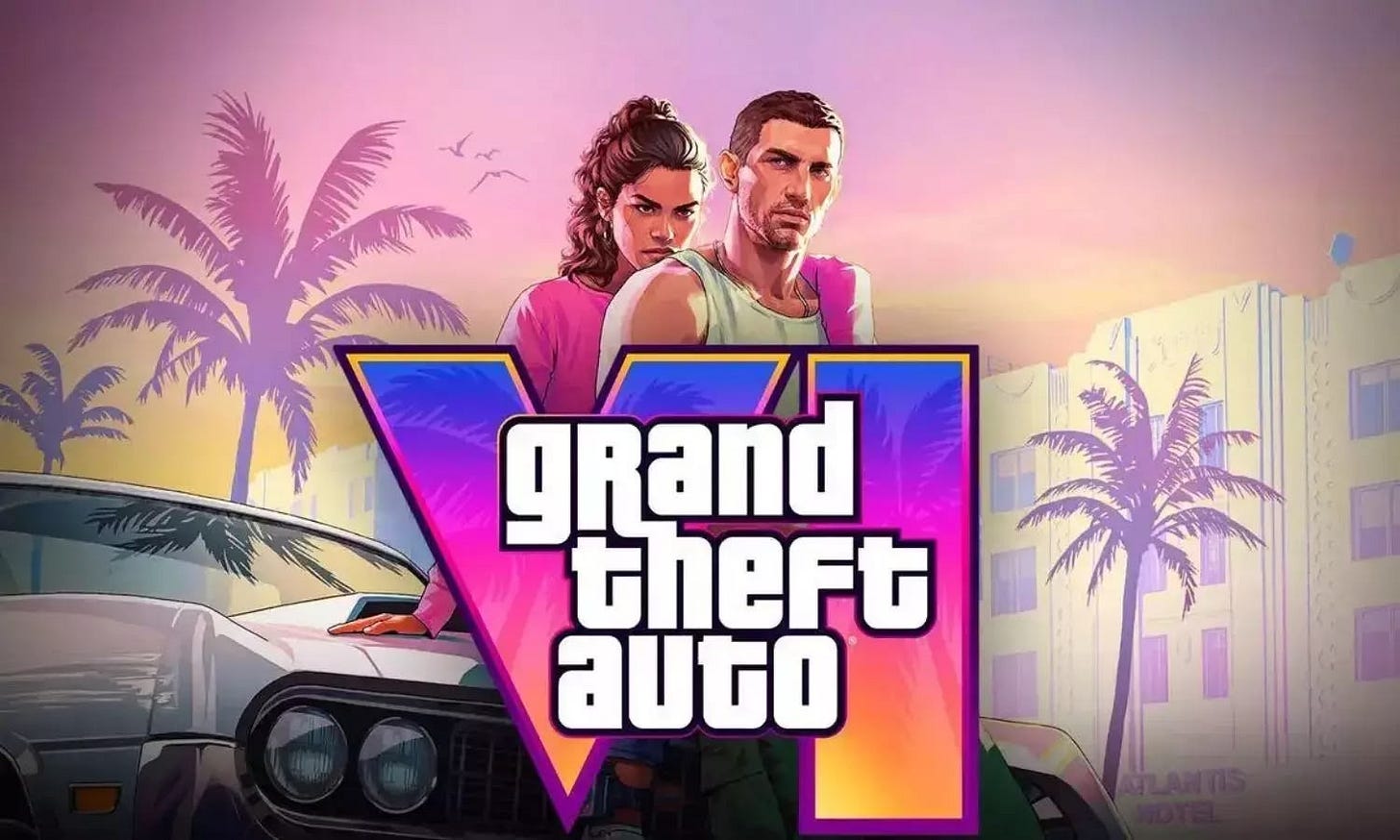Hey, fellow gamers and industry friends!
I've been thinking about you all lately, especially those navigating the rocky terrain of the current gaming landscape. When I made that YouTube video back in December analyzing the state of our industry, I really hoped 2025 would be the year things turned around. We all did, right? That persistent optimism that "next year will be better" seems to be part of our collective industry DNA.
But here we are, almost halfway through 2025, and... well, let's chat about what's actually happening out there.
January's False Dawn
The year kicked off with what seemed like positive momentum. Remember when EA Sports FC (the fancy new name for what we all still call "FIFA" in our heads) hit the market? Even though sports games aren't my personal cup of tea, I totally get their importance. For millions of players worldwide, that annual football game might be the ONLY title they purchase all year.
Then EA dropped that gorgeous new Dragon Age, which not only looked incredible but seemed to be selling well too. A few other unique titles were making waves, and January passed without the dreaded layoff announcements that had become an unfortunate New Year's tradition in 2023 and 2024.
I found myself cautiously optimistic. Maybe, just maybe, we'd turned a corner?
February's Reality Check
Then February rolled in, and things took a sharp turn.
Warner Brothers shut down not one, not two, but THREE game studios. PlayDemic Games, WB San Diego, and most gut-wrenching for many of us, Monolith Productions – the brilliant minds behind Shadow of Mordor and Shadow of War.
Monolith Productions created some of gaming's most innovative titles before their closure
This wasn't coming completely out of nowhere, though. Looking back, there were warning signs. In December 2024, Ubisoft had already shuttered their XDefiant brand – remember that shooter they hoped would take on Call of Duty? Like many similar attempts, it started with promise but couldn't maintain momentum.
Why do these games struggle to find long-term audiences? I think player sentiment is shifting. Gamers increasingly want less focus on AAA spectacle and more on authenticity and substance. Which sounds great in theory, but it's devastating for the thousands of developers caught in these studio closures.
The East-West Shift
Then came what might be the most concerning closure yet: NetEase shutting down their Seattle studio behind Marvel Rivals. According to industry reports, they're redirecting those resources toward operations in China.
This follows a pattern I've watched develop for years. Chinese investors acquire Western studios, absorb their expertise and intellectual property, then gradually shift operations eastward where development costs are significantly lower.
Between declining revenues, ongoing closures, and this East-West talent migration, anxiety levels across the industry are understandably high. And that's before we even talk about the aftermath of the COVID boom-and-bust cycle.
The COVID Hangover
Remember when everyone was stuck at home during lockdowns? Gaming exploded as people sought entertainment and connection. Studios couldn't hire fast enough! Hundreds of jobs materialized almost overnight as companies scrambled to meet unprecedented demand.
Now we're experiencing the equal and opposite contraction. My LinkedIn feed has transformed into a scrollable tapestry of talented friends announcing they're "open to work." These aren't mediocre developers – these are industry veterans with incredible portfolios who, in any rational world, would have job security for life.
It's heartbreaking. I know so many of you reading this might be in that exact position right now, and I want you to know you're not alone.
Finding Light in the Darkness
OK, so far this newsletter probably has you wanting to crawl under your blankets and hide (trust me, I've been there too). But I wouldn't be me if I didn't try to find some silver linings.
Remember Warren Buffett's famous advice to "be fearful when others are greedy, and greedy when others are fearful"? There's wisdom there for game developers too.
These industry shifts WILL create opportunities for those willing to adapt and innovate. The question is: are you seeing what others can't?
For my animation friends especially, this might be the catalyst you needed to:
Launch that YouTube channel or tutorial series you've been daydreaming about
Start a small animation outsourcing studio serving indie developers
Create your own indie game with a focused scope and unique art style
Explore adjacent industries that value your skills (film, advertising, education)
Supergiant Games as seen above, showcases that more nimble indie teams continue to create some of gaming's most innovative experiences
After 20+ years in this industry, including lengthy stints at AAA studios, I've noticed something: The longer you stay in that environment, the more you can feel like an interchangeable part in a massive machine. Moving from one major publisher to another often brings the same experience with different IP slapped on top.
For creative souls, that's soul-draining. Perhaps this industry reset is pushing talented people toward work that ultimately makes them happier and more fulfilled.
I've seen this play out numerous times. The animator who got laid off and reluctantly started freelancing... only to discover they love being their own boss. The designer who joined a tiny indie team and rediscovered their passion for game creation. Sometimes what feels like the worst thing can become the best thing that ever happened to you – you just can't see it yet.
The GTA Factor
Looking ahead, there's one potential industry earthquake that could change everything: Grand Theft Auto 6.
Will GTA 6 revitalize the AAA space or set impossible standards for everyone else?
Every GTA release fundamentally reshapes the gaming landscape. The cultural and financial impact is staggering. If any game can prove AAA development still has a viable future, it's this one.
I vividly remember when GTA V dropped back in 2013. Suddenly, every publisher wanted their own open-world action game. While I'm not advocating for copycat development, that competitive response created jobs and opportunities across the industry.
But here's the uncomfortable question: What if GTA 6 fails to make the expected impact? What if even Rockstar's juggernaut can't generate the returns investors demand? That would signal a fundamental shift in what's commercially viable in our industry.
I'm cautiously optimistic about GTA 6. Rockstar has an unmatched track record, and they've supposedly spent over a decade on development. Reports suggest Take-Two has invested around $2 billion into this single title, making it potentially the most expensive entertainment product ever created. That's a massive bet on AAA gaming's future.
Console Refreshes to the Rescue?
The other potential lifeline is hardware-driven. Nintendo is preparing the Switch 2 for a rumored late 2025 launch, while industry insiders suggest PS5 Pro and the next Xbox iterations are in development.
New hardware historically stimulates game sales and creates market opportunities. The Switch 2 might not represent a revolutionary leap, but Nintendo continues demonstrating you don't need cutting-edge technology to create compelling experiences.
Speaking of Nintendo, they remain a fascinating case study. While Western publishers chase monetization trends and service models, Nintendo steadfastly focuses on game quality first. Their message has been consistent for decades: Make extraordinary games, and commercial success will follow naturally.
Development Hell
Have you noticed how absurdly long game development cycles have become? Five to seven years between releases is now common for AAA titles. That's almost double what it was fifteen years ago.
Gamers have been vocal about this – they want their favorite franchises to evolve more frequently. The risk of these extended development periods is losing audience interest or creating impossible expectations that no game could satisfy (looking at you, Cyberpunk 2077).
I believe the industry needs to target 2-3 year development cycles for most projects. Emerging technologies, including some AI applications (though I have mixed feelings about these), might help make this possible by streamlining certain production bottlenecks.
The gaming industry is still relatively young compared to film or music. We're figuring things out as we go. The film industry went through its own tumultuous periods of technological disruption and business model evolution. They adapted, and so will we.
Islands of Excellence
Despite the doom and gloom, amazing games continue to emerge. Have you played Hazelight Studios' Split Action yet? Following their success with It Takes Two, they've delivered another player-focused experience that demonstrates passionate development can still succeed.
Watch any interview with Josef Fares (Hazelight's founder). His enthusiasm is infectious because it's genuine. He's a hardcore gamer making games for other gamers, speaking their language and understanding their desires.
Josef Fares represents the kind of authentic passion that resonates with today's gaming audience
That connection is precisely what's missing from many major publishers today. PlayStation and Xbox built their brands on being the gamers' champions, but corporate priorities have increasingly displaced that player-first mentality.
Both platform holders could learn from Nintendo, indie developers, and mid-sized studios like Hazelight that still put players at the center of everything they do.
Community Brainstorm
I've shared my perspective, but I'm just one person with one vantage point on this complex industry. What do YOU think about the current state of gaming?
Do you see improvement coming soon, or are we in for several more years of turbulence?
What opportunities do you see emerging from these challenging times?
If you're a developer, how are you adapting your career plans?
As a player, has your gaming behaviour changed in response to industry trends?
Drop your thoughts in the comments below! I genuinely read every response, and your insights often shape my thinking for future newsletters.
Before You Go...
If you found this valuable, consider sharing it with friends navigating these industry waters. And if you're not already subscribed, hit that button to get these industry analyses directly in your inbox.
Also if you’re interested in learning more about Motion Capture, I am releasing Part 3 and final of my course in a few weeks. More info here: learn.harveynewman.com
For those struggling with job uncertainty right now, remember: your skills have value, this industry will recover, and sometimes the most difficult transitions lead to unexpected opportunities. Hang in there.
Until next time,
Harvey
This newsletter is based on my observations as someone who's been in game development for over two decades. I'd love to hear your experiences and perspectives in the comments. Together, we can help each other navigate these challenging industry waters.











Share this post